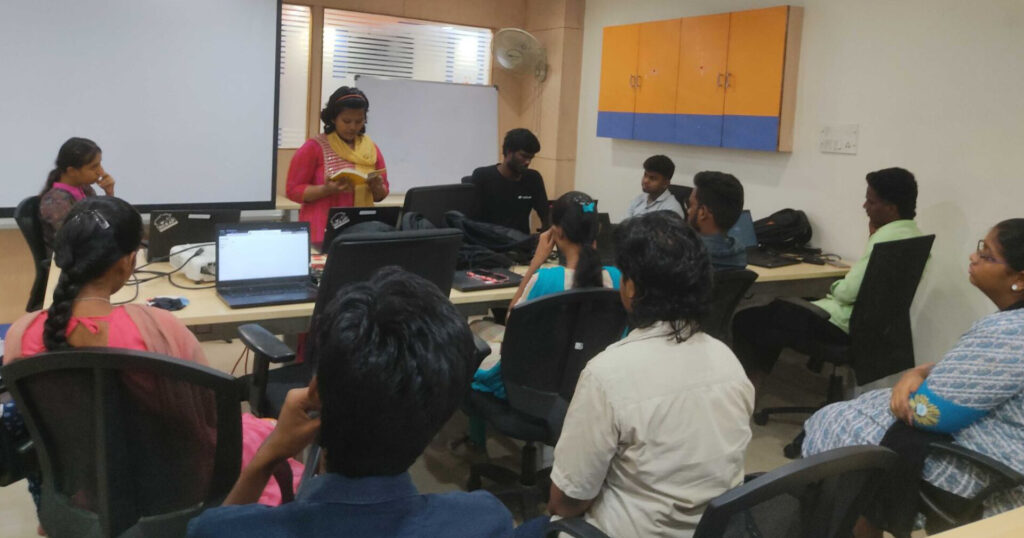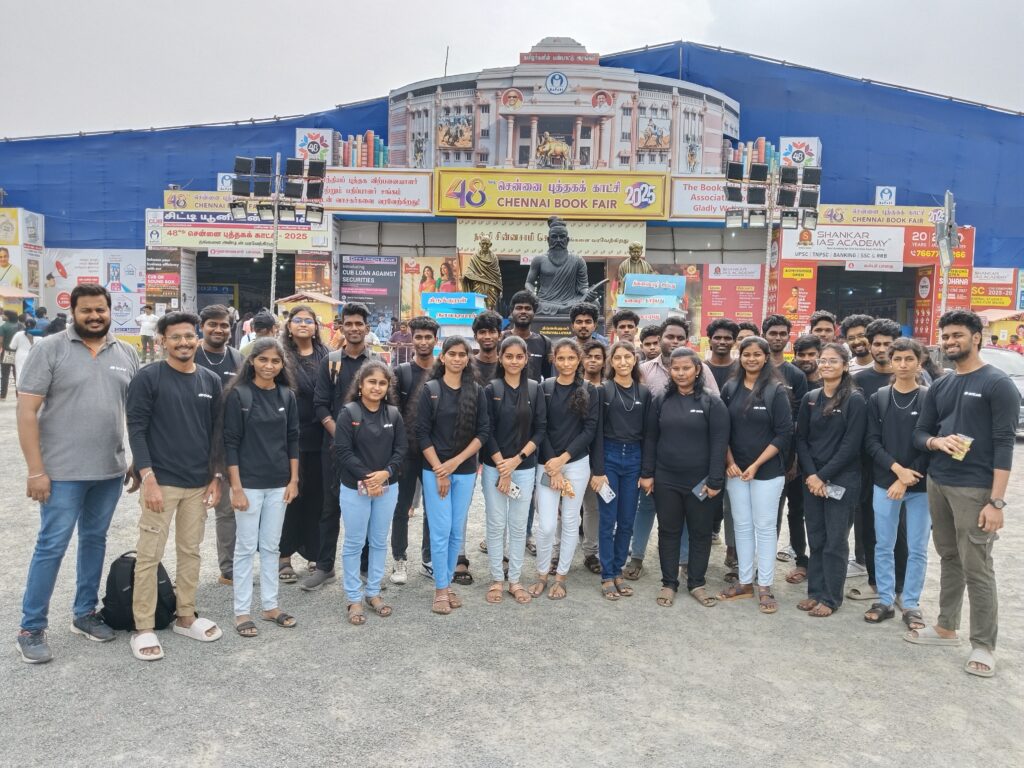Once upon a time, there lived a king and queen…
Every single one of us started our reading journey with some variation of these magical words. Our parents read us stories before bed. Schools had library periods that felt like treasure hunts. Reading was not a task, but something we found joy in.
But then… life happened.
We entered college. Textbooks replaced storybooks. Careers and families took high priority. The little time we have for ourselves is often lost to the endless scroll of social media.
Reading for joy, for pure learning, has started to feel like a luxury.
People now say, “I don’t have time to read,” or “I get everything from YouTube and courses.”
But on this National Book Lovers Day, we want to challenge that notion. Are we truly past reading books? Can a video ever replace the deep, profound wisdom found within the pages of a book?
Our answer is a resounding NO!
In fact, we strongly believe in the power of reading. We also made it a part of our routine at DCKAP Palli. Every week, our students gather around to read books, share their understanding and ask the most important question: “What can we learn from this?”
“Knowledge is only useful when it’s shared.” – Carl Sagan
We believe that what we learn shouldn’t stop with us. That’s why we’re starting this blog series, to share not just book summaries, but real insights from our book reading sessions and starting a movement to bring the magic of books back into our busy lives.
The first book we explored at DCKAP Palli was Essentialism by Greg McKeown.

Why Essentialism?
Because most of us are trapped in the belief that we have to do everything, all at once. We overload ourselves with tasks, juggle multiple projects, chase too many goals, and buy things we don’t need, just to impress others.
In the middle of all this noise, we forget the truly essential things such as, reading a book, going for a walk, exercising, or simply spending a moment with nature. We’ve convinced ourselves that we need to be switched on 24/7, always doing something.
But this constant alert mode doesn’t just exhaust us. It slowly takes away the joy of life.
What is Essentialism?
So, what exactly is Essentialism?
In simple terms, it’s for anyone who feels overworked, overwhelmed, and pulled in a hundred directions, like most of us.
It’s not about ticking more tasks from your to do list. It’s about choosing only what truly matters and letting go of everything else. Greg McKeown doesn’t just give theory. He gives you a way to actually live with clarity and intention, every single day.
Key Lessons from Essentialism
1. Embrace the Core Mindset: Less but Better
At its heart, essentialism is a philosophy. The goal isn’t to be a productivity machine, but to be an impact machine.
- Trade-Offs are Inevitable: You simply cannot have it all or do it all. An Essentialist doesn’t dread trade-offs; they consciously and deliberately make them.
- Clarity is Power: When you are crystal clear on your goals, it becomes easy to identify and discard what’s nonessential.
2. Reclaim Your Power of Choice
It’s easy to feel trapped by obligations, but the book reminds us that choice is our greatest power. You are the designer of your life. Don’t default to others’ expectations or let them dictate your agenda.
3. Cultivate Clarity and Ruthless Focus
Without focus, your energy is scattered and your impact is diluted.
- Define Your Purpose: Get absolutely clear on what matters most in your work, relationships, and personal growth.
- Set Firm Boundaries: Boundaries are not walls; they are the guidelines that protect your priorities from being hijacked.
- Prioritise Ruthlessly: An Essentialist doesn’t have a list of priorities (plural). They have one priority.
4. Master the Art of Saying “No”
Saying “no” is a critical skill for protecting your focus. It can be uncomfortable, but it’s necessary.
- Be Graceful but Firm: You don’t need to be rude. A simple, “I’d love to help, but I can’t take on anything else right now,” is powerful.
- Beat FOMO (Fear of Missing Out): By saying no to short-term requests, you are saying yes to your long-term goals and peace of mind.
5. Achieve More with “Less but Better”
This principle applies everywhere. By focusing your energy on doing fewer things exceptionally well, you create a far greater impact and significantly reduce your stress. It’s about choosing quality over quantity in every aspect of your life.
6. Build Routines and Discipline
Essentialism isn’t a one-time decision; it’s a daily discipline.
- Create Protective Routines: Block out time for your most important work (“deep work”) and protect it fiercely.
- Build in a Buffer: Always add extra time into your schedule. This buffer absorbs unexpected delays and prevents one setback from derailing your entire day.
7. Make Time to Escape and Explore
In our noisy world, you need to create space to think. An Essentialist carves out time for solitude, reflection, and exploring new ideas. This is not wasted time; it’s how you stay connected to what is truly essential.
Why Should You Read Essentialism?
You should read this book to learn how to reclaim your life from the tyranny of the trivial. It provides a practical framework for focusing on what truly matters by teaching you the art of eliminating the distractions that drain your time and energy. It’s a guide to designing a life that aligns with your highest priorities, leading to more impact with less effort.
Final Thoughts
The biggest lesson we learned is that success isn’t about cramming more into our days. It’s about having the wisdom and courage to do only what truly matters. By focusing on the essential and eliminating the rest, we can gain clarity, control, and a deep sense of fulfilment. It’s a clear path to a simpler, more intentional, and more powerful life.

DCKAP Palli Team at 48th Chennai Book Fair
This book reminded us that simplicity isn’t laziness. And in a world that constantly tells us to do more, be more, and chase more, sometimes, the bravest thing we can do is choose less.
Let’s bring back the joy of reading, not just for ourselves, but for those around us. Have you read Essentialism? Share with us the lessons you learnt from the book. And if you have a book that changed your perspective, we’d love to explore it next.
